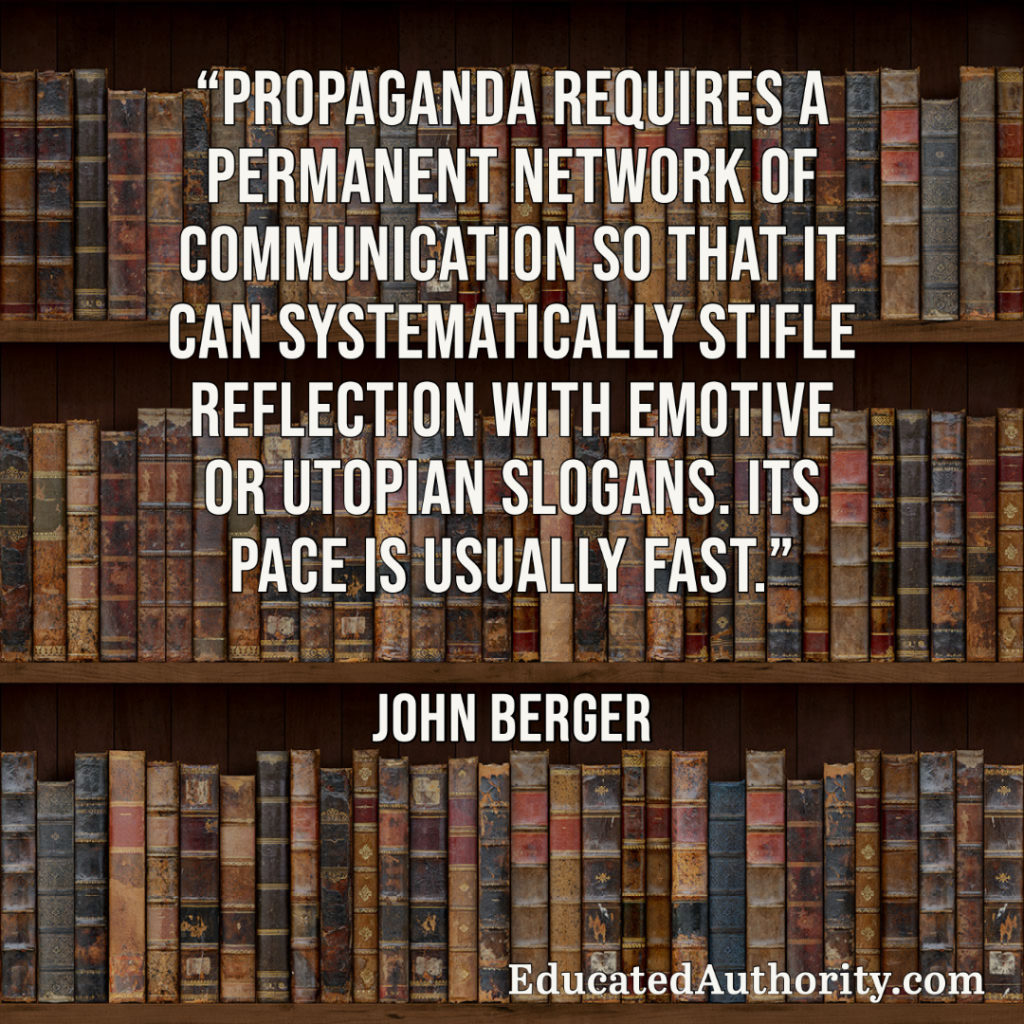“Propaganda requires a permanent network of communication so that it can systematically stifle reflection with emotive or utopian slogans. Its pace is usually fast.”
— John Berger
Trigger Warning: This is one of those posts where I teach you how to do something good by studying something bad.
Let’s talk about propaganda. I love that phrase, “permanent network of communication.”
It’s exactly what you need, too.
When I work with authors, we often have to take a step back from thinking about a book (as great as a book is) to recognize the one main limitation of the medium: a book can only say what you wrote; no more. Once the book has stated its points, that’s it. It can do no more. And that’s the problem. The “one and done” nature of a book can’t establish, build, and maintain a relationship between you and your followers.
Just like the successful propagandist, you need a “permanent network of communication,” a way of continuing the conversation going. This channel could be an email list (ideally), a social channel with high engagement, a podcast, or a video series.
You’re going to use that channel to accomplish a number of goals, such as: make the follower feel “at home,” tell them your stories, teach them your “lexicon” of words and phrases that are particular to you, and generally lead a cult of personality.
Remember that your crowd, or audience, is either climbing or descending in value every day. It doesn’t take very long before you might as well have never built that audience at all. Keep the lines of communication open, and communicate strategically so that you can not only maintain the value of your audience, but continue to build it.
